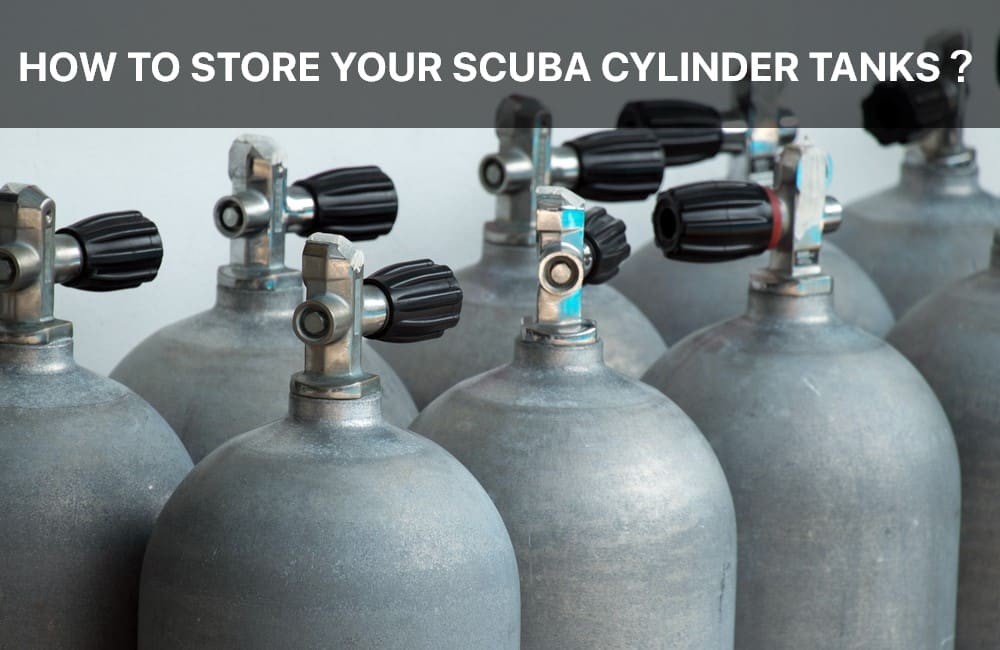Tank storage is important whether you’re using steel or aluminum tanks. Improperly storing your tanks can lead to damage and leaks, both of which can be dangerous. This article will cover the best way to store your tanks to prevent any issues. Let’s get started!
Rinse and Dry Your Scuba Cylinder Tanks Before Storage
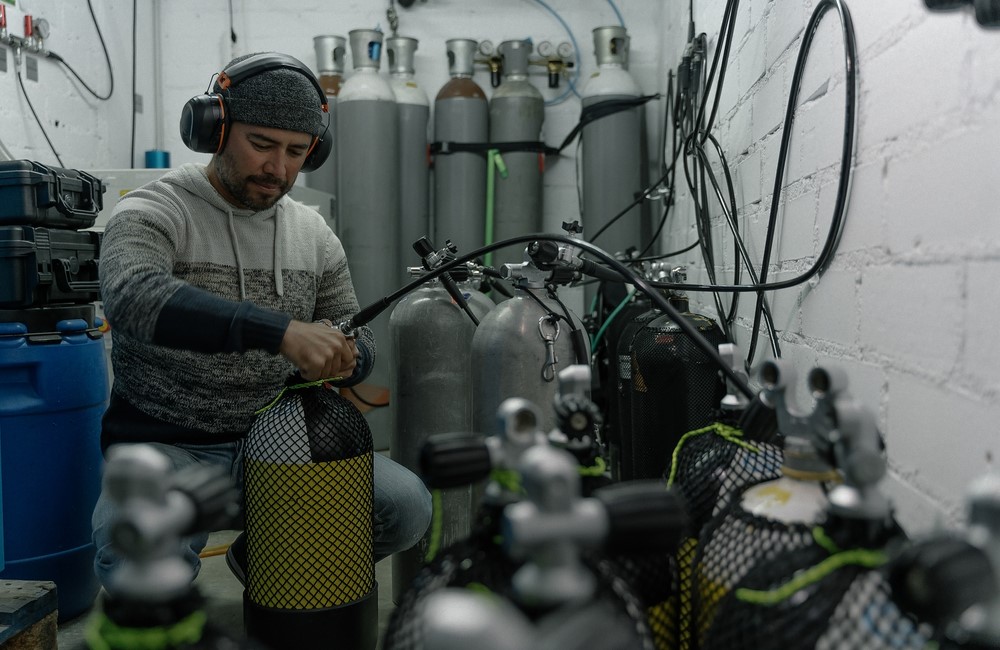
Divers know that taking care of their gear is essential to having a safe and successful diving experience. That’s why it’s important to rinse and dry your scuba cylinder tanks before storing them.
This will help to remove any salt or chlorine residue, which can cause corrosion over time. It’s also a good idea to inspect your tanks for any damage before putting them away. Be sure to check the O-rings and valves, and make sure there are no cracks or dents in the tanks themselves.
Taking these simple precautions can help ensure that your scuba cylinder tanks will be ready to go the next time you hit the water.
Store your Scuba Cylinder Tanks Vertically
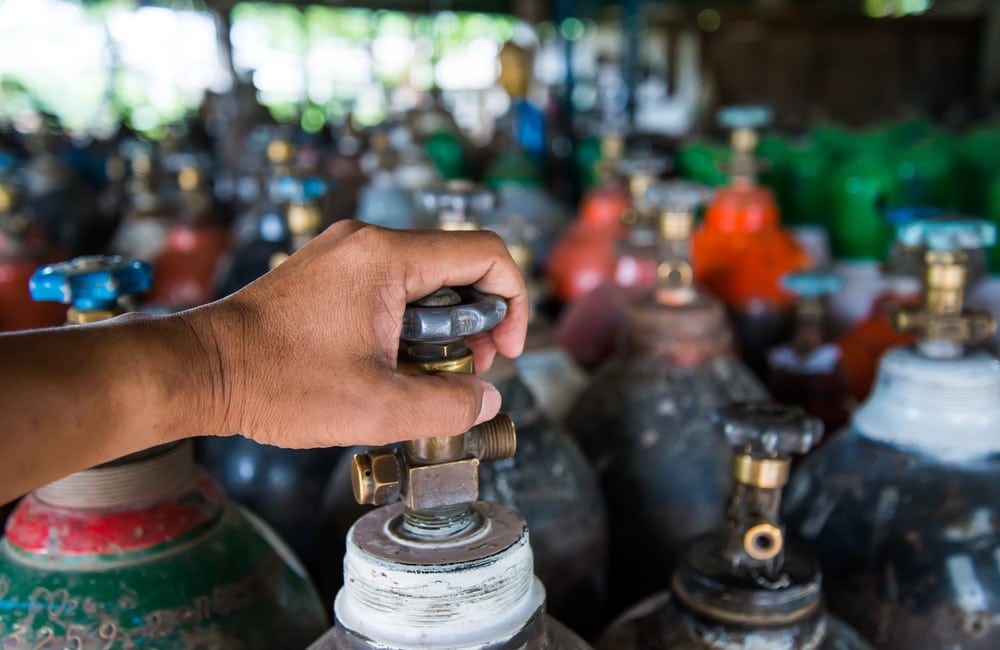
In order to properly store your scuba cylinder tanks, you should always store them vertically. This is because the tanks can become unstable when stored horizontally and potentially fall over.
Additionally, storing the tanks vertically helps prevent the buildup of condensation on the inside, which can lead to rust and corrosion. When storing your tanks, be sure to place them in a cool, dry place away from direct sunlight.
Moreover, checking the tanks regularly for leaks or damage is important. By following these simple tips, you can help to prolong the life of your scuba cylinder tanks.
Leave Some Air Inside the Scuba Cylinder Tanks
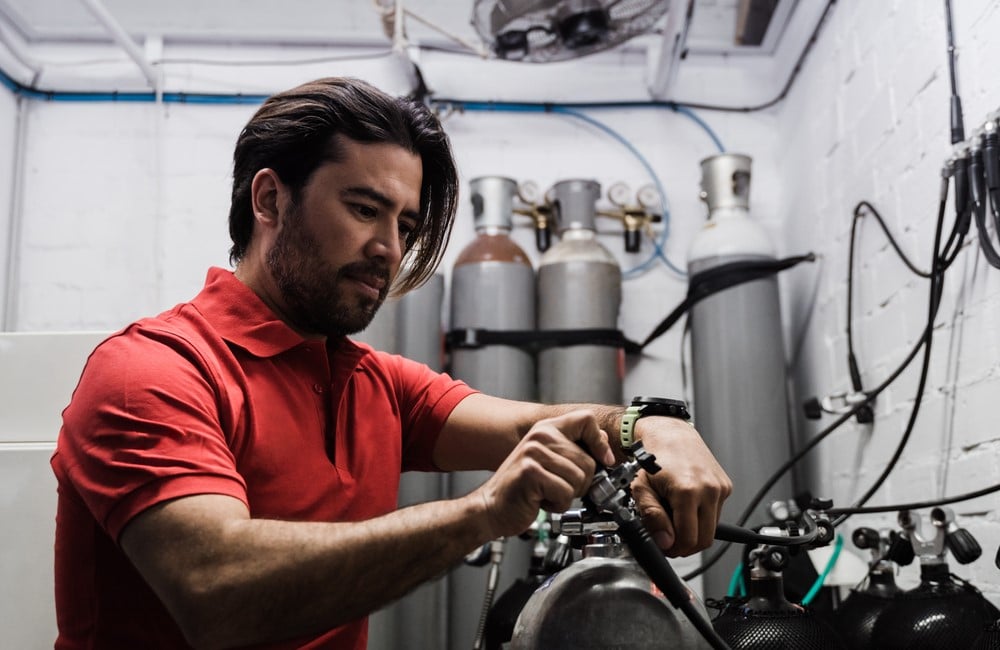
One of the most important things to remember is to leave some air inside the tank. This helps to maintain the internal pressure and prevents the tank from becoming damaged.
Additionally, storing tanks in a cool, dry place away from direct sunlight is important. Extreme temperatures can cause the metal to expand or contract, weakening the tank and making it more likely to rupture.
Avoid Heat
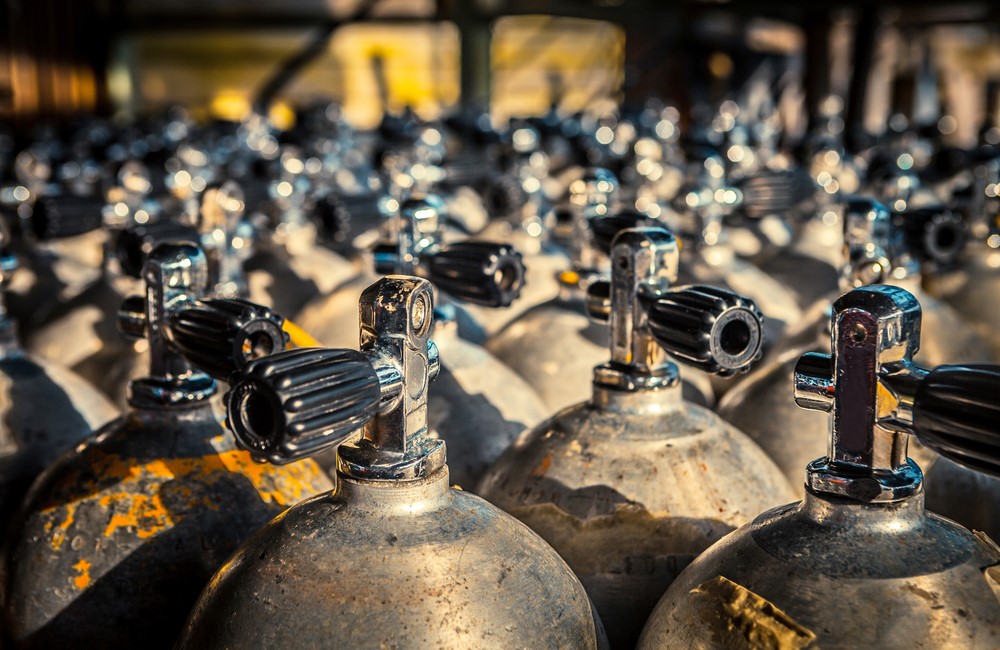
Cylinders should always be stored in a cool, dry place, away from direct sunlight or other sources of heat. Heat exposure can cause the cylinder’s metal to expand and warp, making it more susceptible to leaking or bursting.
In addition, the internal pressure regulator may also be damaged by heat, leading to a loss of airflow. However, by taking a few simple steps to avoid heat exposure, divers can help ensure that their cylinders are ready for use when needed.
Avoid Moisture
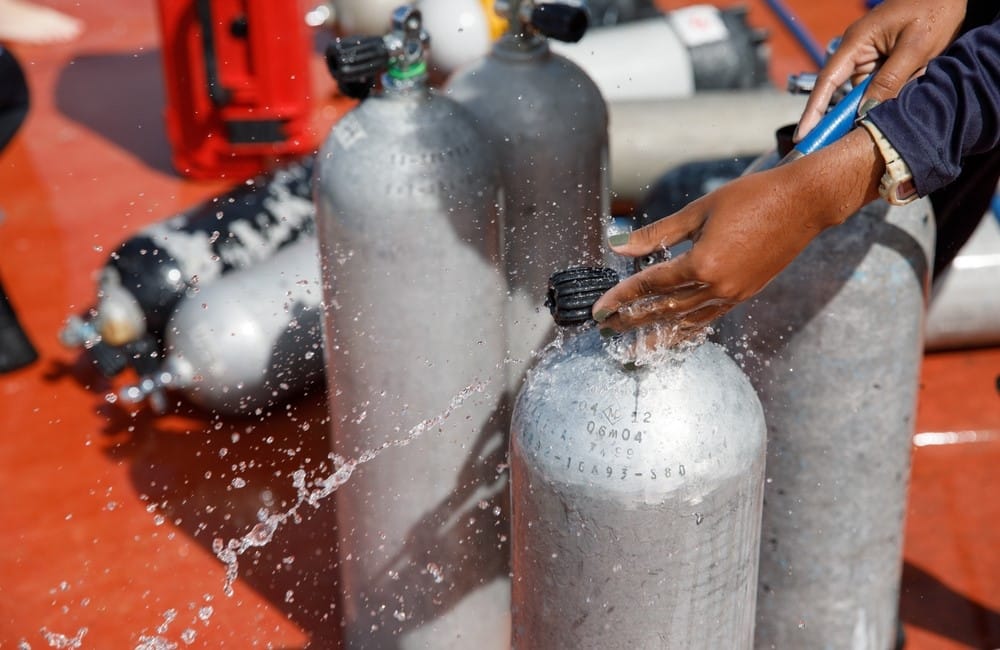
Moisture can cause rust and corrosion, weakening the tank and making it more prone to breakage. It can also cause the valves and hoses to fail. The best way to store your scuba cylinder tanks is in a cool, dry place.
If possible, keep them out of direct sunlight. You should also check the tanks regularly for leaks, cracks, or damage. If you find any damage, have the tank inspected by a qualified technician before using it again.
Get Your Tanks Serviced Before the Stickers Expire
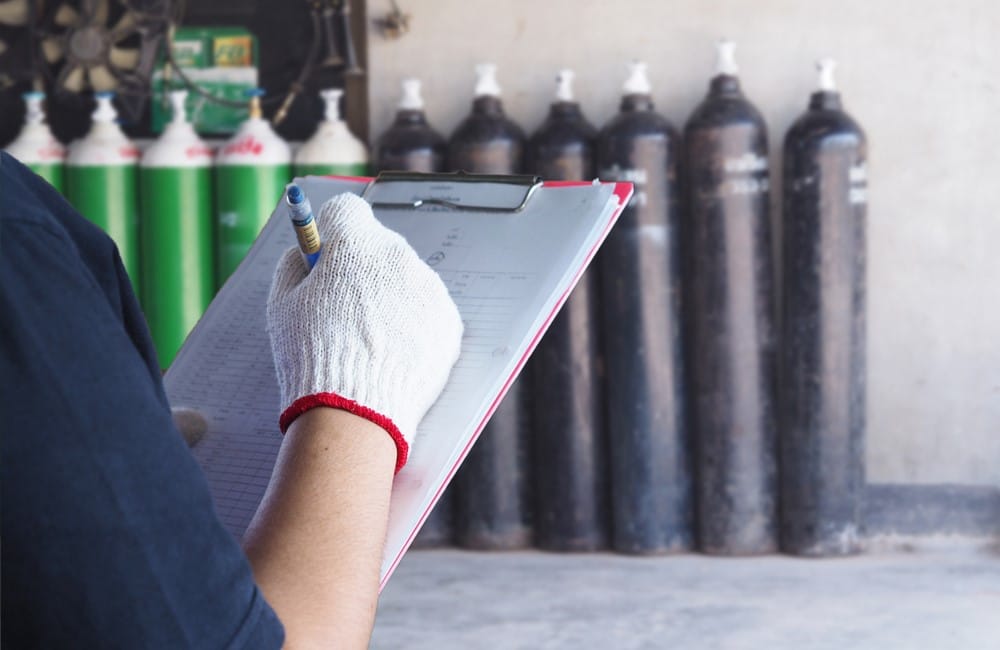
While diving, your life depends on the quality of your scuba equipment. That’s why it’s important to make sure your scuba cylinders are properly serviced and stored. Most scuba tanks have a service life of about 15 years. However, the regulatory authority for each country may have different requirements.
The United States, for example, has a 10-year hydrostatic test requirement for steel tanks and a 5-year requirement for aluminum tanks. When a tank is serviced, the technician will inspect it for any damage and perform a hydrostatic test to make sure it can withstand the pressure of the water.
If you’re not sure when your tank was last serviced, check the sticker on the tank. Most tanks have a red sticker that indicates when the next hydrostatic test is due. Make sure to get your tanks serviced before the stickers expire!
Be Careful During Transportation
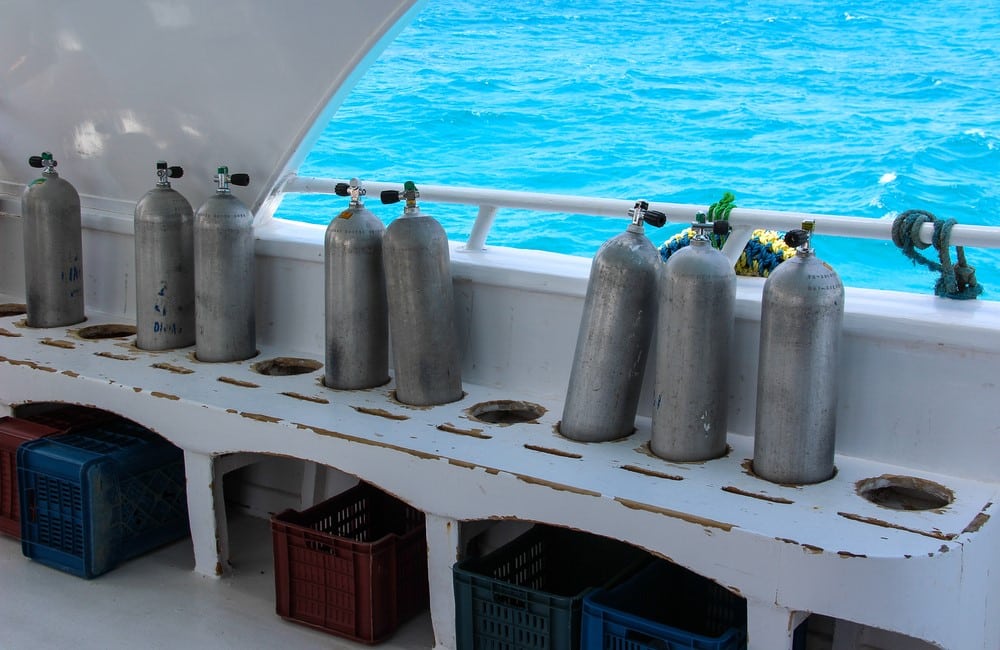
Always use a properly designed trolley or strap them securely to the floor or another fixed object when transporting cylinders. Never leave cylinders standing upright for extended periods of time, as this can damage the valve and cause leaks.
If you are not using a trolley, always carry cylinders by their handles, never by their straps. When storing cylinders, always keep them in a cool, dry place out of direct sunlight. Be sure to check the pressure gauges regularly to make sure that the cylinders are full and in good condition.
Following these simple guidelines can help ensure that your scuba diving experience is safe and enjoyable.
Using a Tank After Long-Term Storage
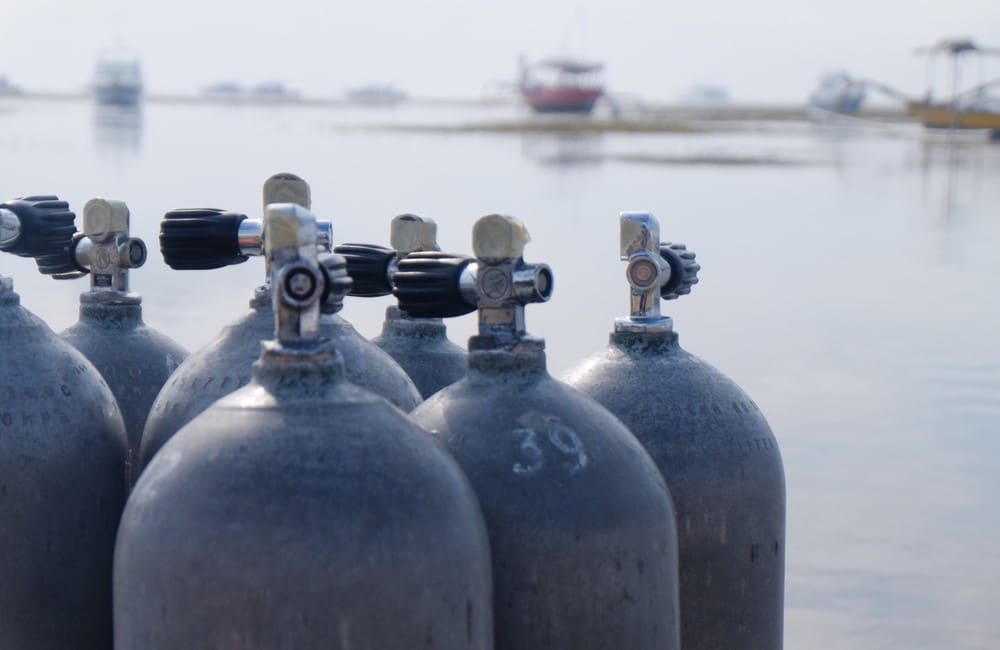
If you haven’t been diving in a while, you may wonder how to store your scuba cylinder tanks properly. The good news is that you can take a few simple steps to ensure that your tanks are ready for use after long-term storage.
- First, it’s important to make sure that the tanks are clean and dry before storage. This will help to prevent corrosion and other damage.
- Next, be sure to inspect the tanks for any signs of damage, such as cracks or dents. If you find any damage, it’s important to have the tank repaired or replaced before using it.
- Finally, be sure to fill the tanks with fresh, clean water before using them. This will help to prevent contamination and ensure that the tanks are properly pressurized.
By following these simple steps, you can be sure that your tanks are ready for use after long-term storage.
FAQ
The following are the most frequently asked questions regarding the storage and maintenance of scuba cylinder tanks:
Why is tank maintenance so important?
Any scuba diver knows that cylinder tanks play a crucial role in their sport. Not only do they provide the air that divers need to breathe underwater, but they also help to keep them buoyant. As a result, scuba cylinder tanks must be well-maintained.
The most important aspect of tank maintenance is ensuring that the tanks are properly filled with air. This can be done by regularly checking the pressure gauges and refilling the tanks as needed.
In addition, it is important to inspect the tanks for any signs of damage or corrosion. Any damaged or leaking tanks should be taken out of service immediately and replaced. By taking these simple precautions, scuba divers can help to ensure their safety and enjoy their sport for years to come.
How to Maintain Your Scuba Cylinder Tanks?
Scuba diving is an amazing activity that lets you explore the underwater world. In order to do so, you need to have a scuba cylinder tank that is filled with compressed air. This tank allows you to breathe while you are underwater. Maintaining your scuba cylinder tanks is important in order to ensure your safety while diving. Here are some tips on how to do so:
- Check for any cracks or damage before each use. If you see any, do not use the tank and replace it immediately.
- Make sure that the O-rings are properly lubricated. Do this by using silicone grease.
- Tighten the valve cap before each use. Make sure that it is not too tight or too loose.
- -Inspect the regulator and hoses before each dive. Check for any leaks or cracks.
- If you are not using your tanks, store them in a cool, dry place out of direct sunlight.
It is important to maintain your equipment in order to stay safe while doing so. Check your gear before each dive, and never use damaged equipment. Be sure to store your tanks in a cool, dry place when you are not using them to extend their lifespan.
Taking good care of your scuba cylinder tanks can help ensure many years of safe and enjoyable diving.
Can you store scuba tanks empty?
Most scuba tanks are made of aluminum, which is a very strong metal. However, it is also susceptible to corrosion. When scuba tanks are stored empty, the inside of the tank is exposed to oxygen, which can cause corrosion.
Additionally, the pressure inside an empty scuba tank can fluctuate, causing the tank to expand and contract. This can also lead to corrosion and weaken the tank. For these reasons, it is generally not recommended to store scuba tanks empty.
If you need to store your tanks for an extended period of time, it is best to fill them with water and keep them in a cool, dark place.
In a Nutshell
So now that you know how to store your scuba tanks, it is important to remember these tips and put them into practice. This will ensure that your tanks are safe and ready for your next dive trip.
